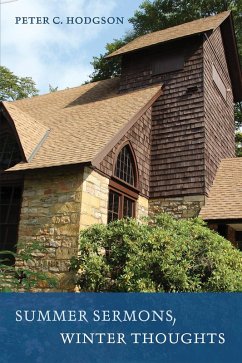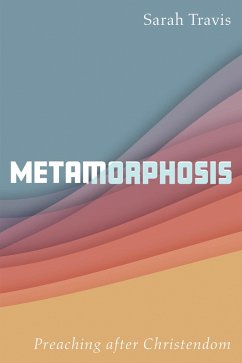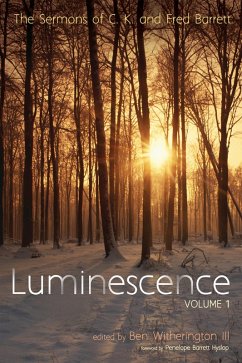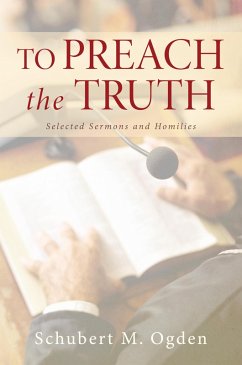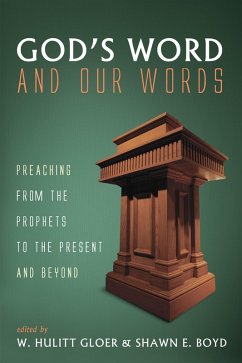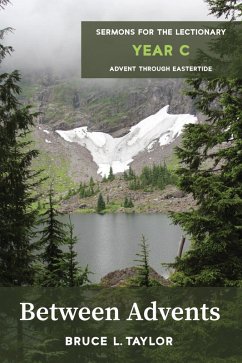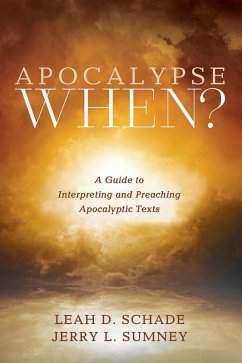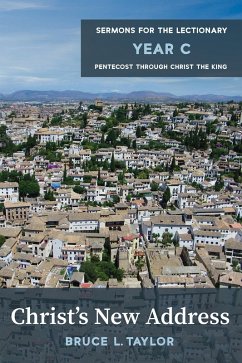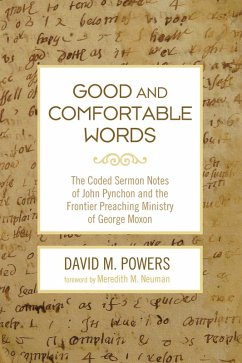
Good and Comfortable Words (eBook, ePUB)
The Coded Sermon Notes of John Pynchon and the Frontier Preaching Ministry of George Moxon
Versandkostenfrei!
Sofort per Download lieferbar
15,95 €
inkl. MwSt.
Weitere Ausgaben:

PAYBACK Punkte
8 °P sammeln!
Thanks to coded notes taken by the teenager John Pynchon, this volume transports the reader, virtually, back to Sundays in the seventeenth century, when the community gathered to listen to the Rev. George Moxon. The setting was Springfield, Massachusetts, founded in 1636 by John's father William Pynchon. As a note-taker, John recorded just what he heard in this rare resource, which allows the reader to listen in on the weekly sermons he documented in the 1640s. This symbol-by-symbol transcription into a word-for-word text preserves the character of the minister's original remarks, and reveals ...
Thanks to coded notes taken by the teenager John Pynchon, this volume transports the reader, virtually, back to Sundays in the seventeenth century, when the community gathered to listen to the Rev. George Moxon. The setting was Springfield, Massachusetts, founded in 1636 by John's father William Pynchon. As a note-taker, John recorded just what he heard in this rare resource, which allows the reader to listen in on the weekly sermons he documented in the 1640s. This symbol-by-symbol transcription into a word-for-word text preserves the character of the minister's original remarks, and reveals Moxon as an able, engaging speaker who offered encouragement--and challenge--to the growing plantation he faithfully served through its earliest years on the edge of a wilderness. Not only do the sermons in this collection provide snippets of popular theological discourse at particular moments in the 1600s; they also point to issues of the day, and they help us get inside the thoughts and word patterns of that era.
Dieser Download kann aus rechtlichen Gründen nur mit Rechnungsadresse in A, D ausgeliefert werden.




